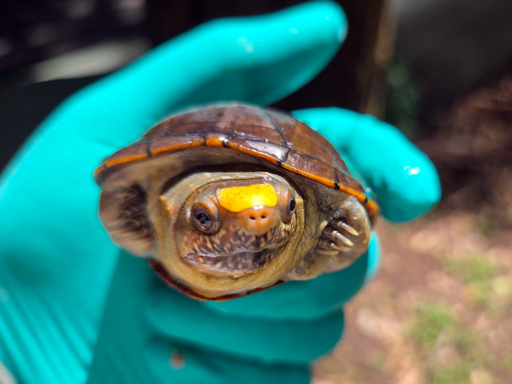In undercover raids carried out in late September, Mexican authorities discovered 2,339 wild-caught turtles crammed into bins in five locations in Jalisco and Baja California states. Along with the live reptiles, they found a massive stash of other illegal wildlife products that are coveted as delicacies in East Asia: 1,569 kilograms (3,459 pounds) of sea cucumbers, 1,188 kg (2,619 lbs) of shark fins, and 39 kg (86 lbs) of totoaba swim bladders. The seized goods were valued at 134 million pesos ($7.3 million). They were destined for the U.S. and East Asia, according to Mexico’s Attorney General’s Office. Authorities arrested three people and charged them with running an organized wildlife trafficking network through an unnamed Guadalajara-based company. The seizure — the largest since 2020, when authorities nabbed 15,000 turtles in Mexico City, also destined for China — highlights the scale of this illicit activity. It was the result of a 10-month-long operation, launched after 55 critically endangered Vallarta mud turtles (Kinosternon vogti) were stolen from a university lab in the city of Puerto Vallarta in January 2025. But this operation had a notable difference, said Taggert Butterfield, the scientific director at the turtle conservation nonprofit Estudiantes Conservando la Naturaleza (Students Conserving Nature) in Mexico. “This is the first major bust where the government used intelligence [gathering] and collaboration with other agencies to make a significant confiscation.” One of the more than 900 Tabasco mud turtle (Kinosternon acutum) seized by authorities. These turtles are a local delicacy in Mexico, despite being…This article was originally published on Mongabay
From Conservation news via this RSS feed


